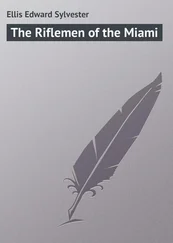Edward Ellis - Bill Biddon, Trapper - or, Life in the Northwest
Здесь есть возможность читать онлайн «Edward Ellis - Bill Biddon, Trapper - or, Life in the Northwest» — ознакомительный отрывок электронной книги совершенно бесплатно, а после прочтения отрывка купить полную версию. В некоторых случаях можно слушать аудио, скачать через торрент в формате fb2 и присутствует краткое содержание. Жанр: foreign_prose, на английском языке. Описание произведения, (предисловие) а так же отзывы посетителей доступны на портале библиотеки ЛибКат.
- Название:Bill Biddon, Trapper: or, Life in the Northwest
- Автор:
- Жанр:
- Год:неизвестен
- ISBN:нет данных
- Рейтинг книги:5 / 5. Голосов: 1
-
Избранное:Добавить в избранное
- Отзывы:
-
Ваша оценка:
- 100
- 1
- 2
- 3
- 4
- 5
Bill Biddon, Trapper: or, Life in the Northwest: краткое содержание, описание и аннотация
Предлагаем к чтению аннотацию, описание, краткое содержание или предисловие (зависит от того, что написал сам автор книги «Bill Biddon, Trapper: or, Life in the Northwest»). Если вы не нашли необходимую информацию о книге — напишите в комментариях, мы постараемся отыскать её.
Bill Biddon, Trapper: or, Life in the Northwest — читать онлайн ознакомительный отрывок
Ниже представлен текст книги, разбитый по страницам. Система сохранения места последней прочитанной страницы, позволяет с удобством читать онлайн бесплатно книгу «Bill Biddon, Trapper: or, Life in the Northwest», без необходимости каждый раз заново искать на чём Вы остановились. Поставьте закладку, и сможете в любой момент перейти на страницу, на которой закончили чтение.
Интервал:
Закладка:
“Why ain’t you got horses?” he asked, looking toward me.
“They were both stolen from us.”
“I don’t s’pose you’ve seen anything of a company with a mare, short-tailed, that limped a little, and an overcoat that had a knife in the pocket?” asked Nat, eagerly.
“Not that I knows on,” answered Biddon, with a twinkle of humor.
I gave the particulars of our loss, and then asked, without due thought:
“Did you not camp upon the banks of the Republican Fork last night?”
“Yas; what’d yer want to know fur?”
“Oh, nothing, nothing,” quickly answered Nat.
I believe the trapper understood my allusion, and I hoped he would give an explanation of his act; but he made no reference to it, and, after further conversation, we all lay down in slumber.
CHAPTER III.
THE TRAPPER’S STORY
I was aroused from my slumber, before it was yet light, by Biddon shaking me and calling in my ear:
“Come, you chaps, you’ve got only two minutes to swaller yer feed in.”
Nat was already moving about, and I sprang to my feet, determined to continue in my friend’s good graces, if such a thing were possible, by a cheerful acquiescence in all his reasonable wishes. Our fire was kindled, a hasty breakfast swallowed, and just as the sun made its appearance above the prairie, we moved off toward the north.
Long before noon we reached the Platte, and forded it at the point where Fort Grattan now stands. The Platte, during the winter months, is a boisterous stream of great width, but in summer it is very shallow (from which circumstance it derives its name), and at the dry season it almost ceases running, and dwindles down to an innumerable number of stagnant pools. As it was now the summer season, we walked over without more than merely wetting our shoes. The Oregon trail follows the northern shore of this stream to Washington Territory, or to what was Oregon at the time of which I write. Leaving the Platte, we shaped our course toward the northwest, so as to strike the southern spur of the Black Hills. From Biddon’s conversation, I found that his destination was the neighborhood of the head-waters of the Tongue or Powder River, which have their cañons in the Black Hills.
As he allowed his horse to proceed upon a moderate walk, we had no trouble in keeping him company. We generally started at the first indication of morning, halting now and then to slake our thirst in the numerous streams which crossed our path, and resting an hour at noon. At sunset we struck camp upon some small stream, cooked our evening meal, spent an hour or two in smoking and conversation, and turned in for the night.
The country over which we now journeyed was much better timbered than any through which we had yet passed. For an entire day after crossing the Platte, we met with thousands of the ash, elm, walnut, and cottonwood trees. The bark of the latter, I was surprised to observe, was greatly relished by the trapper’s horse, he often preferring it to the rich, succulent grass which so abounds in this region. Besides this there were signs of the buffalo, antelope, and hundreds of other animals.
One night we halted upon the bank of a large stream some miles north of the Platte, which emptied into the Missouri. It was quite broad and rapid, and near the center of the channel a small, sandy island was visible. We passed over this while fording the stream, and I noticed that Biddon walked around it, and surveyed several spots with more than common interest. I did not question him then, but at night, when we were stretched before the fire, with our soothing pipes, I ventured the inquiry.
“I seed sights on that chunk of mud one time,” said he, with a dark frown.
“What was it? – what was it?” asked Nat, eagerly.
“Here’s as what don’t like to think of that time, augh!” he answered, seeming still unwilling to refer to it.
“Why not?” I asked, beginning to partake of Nat’s curiosity.
“It makes a feller’s blood bile; but, howsomever,” he added, brightening up, “if you wants to hear it, yer kin.”
“We do by all means; please give it.”
“Yas, that ar’ war’ a time of general wipin’ out, and this yer water that now looks as black as a wolf’s mouth, run red that night! It war’ nigh onto ten year ago that it happened. I was down in Westport one day in the summer when a feller slapped me on the shoulder and axed me ef I wanted a job. I tole him I didn’t care much, but if he’s a mind to fork over, and it wan’t desprit hard, and too much like work, I’s his man. He said as how thar’ war’ a lot of fellers camped out on the prairie, as war gwine to start for Oregon, and as wanted a guide; and heerin’ me spoken on as suthin’ extronnery, why he like to know ef I wouldn’t go; he’d make the pay all right. I cut around the stump awhile and at last ’cluded to go. I went out onto the perarie, and seed the company. They were men, women, and children, ’specially the last ones. I seed they wanted good watchin’, and I kinder hinted they’d find trouble afore they’d reach Oregon.
“There weren’t many folks trampin’ these parts then, and them as did go, had to make up thar minds to see fight and ha’r-raisin’. B’ars and beavers, they did! The reds war the same then all over, arter you get clear of the States, and no feller’s ha’r war his own till he’d lost it.
“We started the next day, and struck the Platte afore night. There war but twenty good men, an’ I made half of ’em stand watch that night just to get their hands in. In course they didn’t see nothin’, ’cept one straddlin’ chap, like this feller yer that is called Nat. He said as how he seed wonders, he did, and thar war a hundred reds crawlin’ round the camp all night.
“We went purty slow, as it weren’t best to hurry the teams; but we hadn’t been two days on the way afore the fools got into the all-firedest scrabble I ever seed. I don’t know what it come ’bout, but it war so big, they split company, and part of ’em crossed over and camped on t’other side the Platte. I tole ’em they’d see stars purty soon, if they didn’t splice agin, but they’s too rearin’ to do it, and I said if they’s a mind to be sich fools, they mought be fur all me, and I’d let ’em go on alone. Howsomever, the smallest party hung on fur me not to leave ’em, and I ’cluded to stay with ’em as I knowed purty well they’d need me all the time.
“The biggest company as had crossed the Platte, kept on by it, and so the others said they’d leave it and cut across fur Oregon. I tole ’em this war the best way, and so we left ’em. Them I war with war a heap the smallest, and had but three or four men and five or six women and children. What made things look wuss, I seed ‘signs’ when we parted, and I knowed purty well the reds smelt what war goin’ on. And ’bout a dozen times in the afternoon I could see ’em off on the perarie stealin’ long and dodgin’ through cover. I knowed that the imps were follerin’ us, seein’ the other war a heap more powerful nor us.
“Things got so dubersome afore night, I said to the men ef they’d take the advice of a feller as knowed what he war ’bout, they’d turn round and never stop till they cotched the others; for ef they didn’t, they’d cotch it at night; reds war ’bout them as thick as flies. They said how ef I’s ’fraid I m ought go back, but as for them they ’d go through fire and blazes ’fore they would. I felt riled ’nough at this to leave ’em, and I would ef it hadn’t been fur them poor women; they looked so sorrerful I made up my mind to stick to ’em fur thar sake.
“We reached the stream just as it war growing dark, and the reds had got so sassy, that five or six of ’em stood a little ways off and watched us. This scart the women and men, and they axed me what war to be done? The women cried and wanted to coax the Injins up to give ’em sunkthin’ to get thar good will, but they war cross and sulky, and didn’t say much.
Читать дальшеИнтервал:
Закладка:
Похожие книги на «Bill Biddon, Trapper: or, Life in the Northwest»
Представляем Вашему вниманию похожие книги на «Bill Biddon, Trapper: or, Life in the Northwest» списком для выбора. Мы отобрали схожую по названию и смыслу литературу в надежде предоставить читателям больше вариантов отыскать новые, интересные, ещё непрочитанные произведения.
Обсуждение, отзывы о книге «Bill Biddon, Trapper: or, Life in the Northwest» и просто собственные мнения читателей. Оставьте ваши комментарии, напишите, что Вы думаете о произведении, его смысле или главных героях. Укажите что конкретно понравилось, а что нет, и почему Вы так считаете.
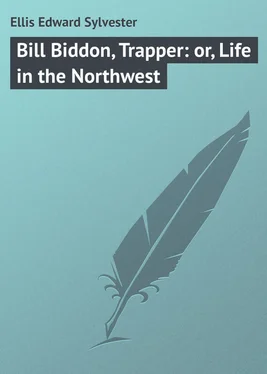

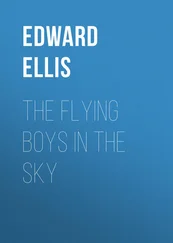
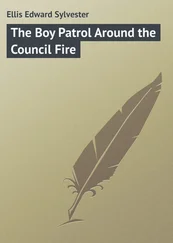



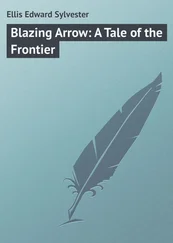
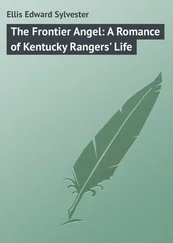
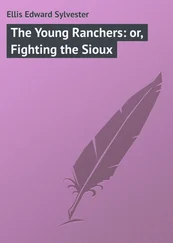

![Edward Ellis - Adrift on the Pacific - A Boys [sic] Story of the Sea and its Perils](/books/753342/edward-ellis-adrift-on-the-pacific-a-boys-sic-s-thumb.webp)
